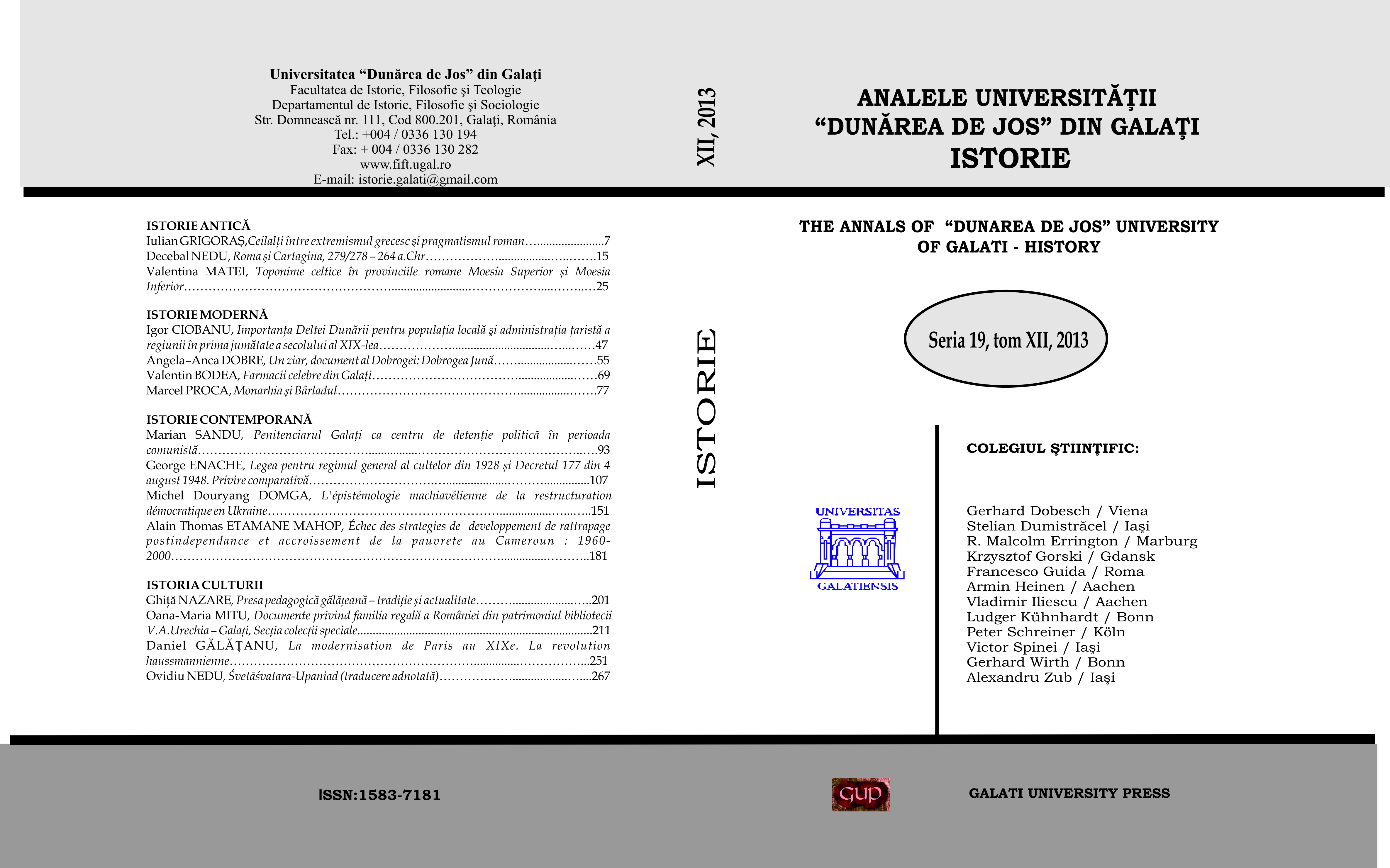ÉCHEC DES STRATEGIES DE DEVELOPPEMENT DE RATTRAPAGE POSTINDEPENDANCE ET ACCROISSEMENT DE LA PAUVRETE AU CAMEROUN : 1960-2000
Failure in Making Up for the Post-Independence Delayed Development and Increasing Poverty in Cameroon: 1960-2000
Author(s): Alain Thomas Etamane MahopSubject(s): Politics / Political Sciences, History, Economy, Law, Constitution, Jurisprudence
Published by: Galaţi University Press
Keywords: strategies; development; post-independence; poverty;Cameroon;
Summary/Abstract: Since obtaining its independence in 1960, the young state of Cameroon had to prove itself and become the master of its own destiny. In the realm of politics, political instability reigned in several regions of the country. In terms of economics, the Cameroonian authorities mobilized themselves to develop the country and provide it with an environment that could foster prosperity. All this came about through the implementation of a policy of economic, social and cultural development through an indicative type of planification. Unfortunately, between 1986 and 1994, Cameroon plunged into serious economic recession that left no sector untouched and consequently aggravated poverty in the country. Poverty came not only as a result of dependence on basic commodities, failure to implement certain strategies that revolved around the idea of replacing imported goods with locally made commodities, but most especially due to the social inconsistency of the structural adjustment programs (SAP). Henceforth, the fight against poverty depended too much on the decision of the Bretton Wood Institutions (BWI) to renew their criteria of analysis, as well as to make public aid for development available. The failures of the structural adjustment program proved that it was inefficient at dealing with the economic crises of Cameroon.
Journal: Analele Universităţii Dunărea de Jos din Galaţi. Seria Istorie
- Issue Year: 2013
- Issue No: 12
- Page Range: 181-199
- Page Count: 19
- Language: French

